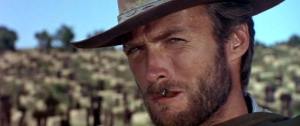
Ms. Bowery is setting out the plates. It is 1 a.m.
Ms. Bowery has hair towered into a bouffant, pink at its base, but crowned with an acceptant gray that she’s chosen to leave untouched. She has stray locks which tangle with her eyelashes, but, unswept, they signify she’s just emerged from a kitchen where heat and humidity have had their play. A menagerie of brass instruments in the backdrop express steam intermittently; a pan of pastries lay proofed in align like a mausoleum of bees encased in their own honey.
“I have polenta crisps,” she offers, which I accept greedily, and she hands me a lacquered patisserie studded with cornmeal, bowed to fit both sides of the plate. I have to crack it with a fork.
“The hotel’s asleep, you know,” Ms. Bowery says; I look up.
“Oh, I know,” I respond, as she leans up against the counter with weighty arms.
I’ve been wandering the hotel since most the doors have closed, following the hallways and remarking the damask carpet.
I gesture with my fork. “This is the best time of night, though.”
“Tell me about that,” Ms. Bowery says, and she turns in her pinstripe uniform to scrub honey from a spent tray of rolls.
I play with my food while she dutifully scours the pan, the back of her arms in constant up and down motion above the sink. The crisp is like the crust of a crème brulee, Ms. Bowery suddenly the alchemist. The polenta falls into candied shards upon the plate, like teeth falling out tink-tink into porcelain.
“I dunno, Ms. Bowery. There’s the side-yard, first of all.”
“Oh—you’ve been there?” she smiles, turning around briefly, before returning to her scrubbing.
“That and the downstairs lobby. I turned a corner, and I at first noticed the chandelier.”
Ms. Bowery shrugs.
“Well hear me out. I noticed the chandelier, but that wasn’t it. Every hotel’s got a chandelier. There were those two hallways leading to the back.”
“Which one did you go down?” Ms. Bowery, asks, shaking the pan dry.
“The left one.”
She nods, returns to the counter, and places her chin in hand.
“Good choice.” She looks down.
“You done with that?” she remarks, gesturing to my food, which is tilework on my plate. I haven’t been eating well.
I push the plate her direction.
“The left hallway had all these intricate balconies—wrought-iron balustrades done up with Spanish moss—wall-hangings, big potted plants. All these voices from the rooms, like, they were condensing on the under-leaves of the plants, and the carpet was thick and I was bare-foot and it was nice.”
“Hmm. Thanks for staying up with us,” Ms. Bowery says, simply, while clearing my plate. She returns to the sink and it’s just me and her in the lobby. There’s the sound of porcelain banging against the aluminum basin.
I try a half-hearted sneer. “Well, if I didn’t stay up with you, then you wouldn’t exist, y’know.”
She returns to the counter and sighs, shakes her head gently. “The quite opposite is true. You realize your eyes are closed, don’t you?” She cocks her head leeward and looks at me sadly.
“I know,” I admit.
“What’d you see in the side-yard?” There’s no lobby music playing.
I take Ms. Bowery’s hand and sigh.
There’s the nothing-sound of a great machine stopped, the otherwise expression of steam from one of Ms. Bowery’s brass contraptions.
Ms. Bowery’s hand disappears and I’m in a field of grass gone silver in the crepuscular light. The sun has slipped its chariot and the night emerges little by little until the sky is just a field of uninterrupted stars. I can’t make out the constellations; I am looking through the long arm of the Milky Way, so it’s as if I’m pressing on my eyes and seeing my retinas explode in multitudinous dots, yellows and greens and blues, that encapsulate and exceed vision at once; and there are crickets which play metered time in the humus beneath my head, a soft timbre that is not a stopwatch, nor a lullaby, but a reminder still of moments passing while stars fall from their orbit in a series of sky happenings, as the horizon gets darker, as the moon grows brighter, as the silver grass grows more illuminative with 1 a.m passing, then 2.
“It’s a good place, isn’t it?” Ms. Bowery asks.
I nod my head. She tucks a curl back from her brow.
“Come back anytime. This hotel, it is yours.”
 Gunslinger night.
Gunslinger night.